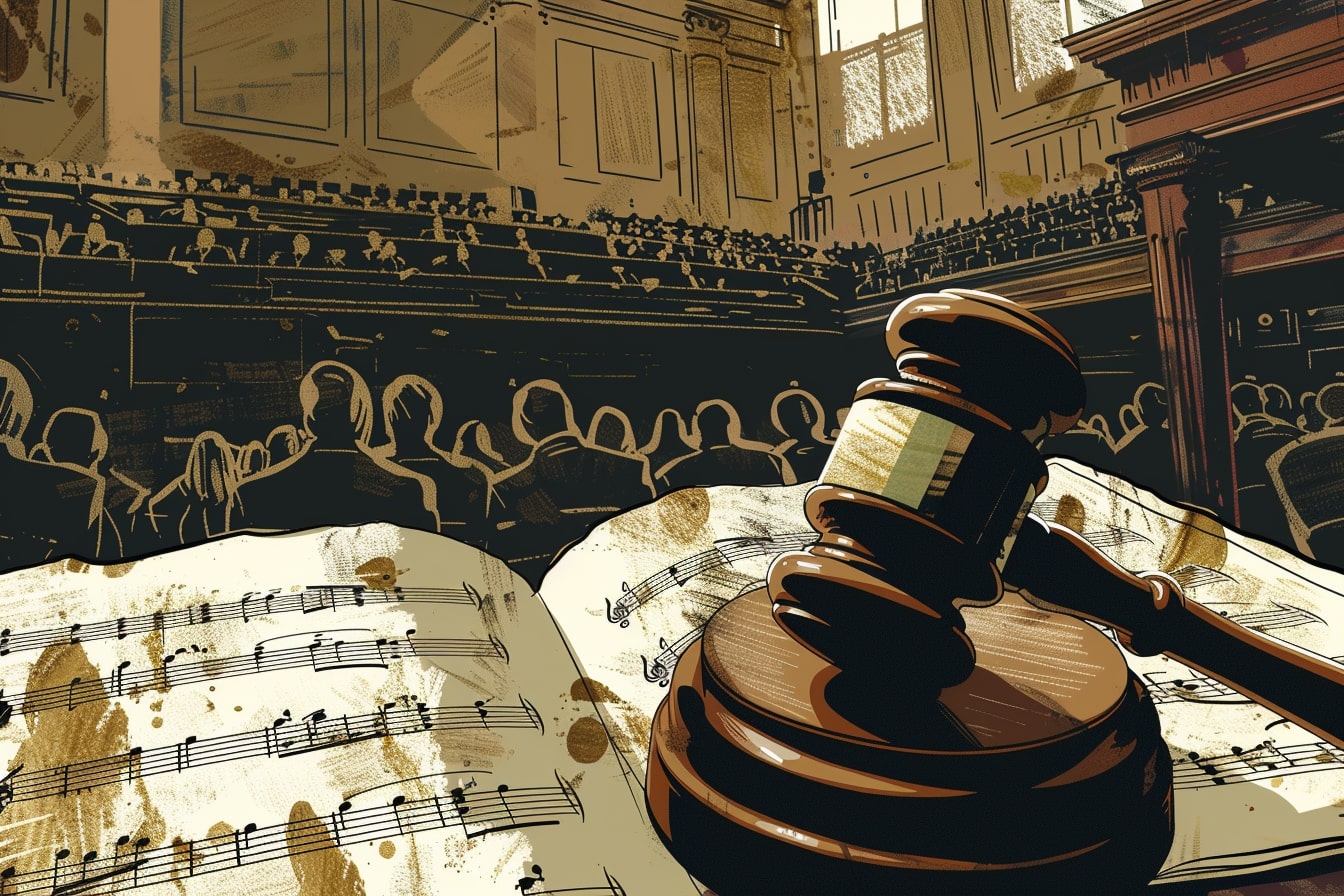
This is an AI-generated image created with Midjourney by Molly-Anna MaQuirl
Artificial intelligence has ignited debates regarding its creative prospects and the legal implications within the music industry. Major US music record labels, including Universal Music Groups, Sony Music Entertainment and Warner Records, have made a significant move in their battle against two eminent AI song-making startups, Suno and Udio.
The record labels have launched lawsuits and filed legal actions through the Recording Industry Association of America (RIAA) against Suno in Boston and against Udio in New York federal courts.
The allegations involve the unauthorized use of copyright-holder content, with each label seeking a staggering $150,000 in compensation per infringed work. This development marks a significant turn in the ongoing debate over AI's role in the music industry.
Suno and Udio are new startups that operate as unlicensed services based on AI song-creation technology. They use generative artificial intelligence to automate the music-making process, which begins with a short-written prompt. These automated music companies can train huge datasets that contain millions of pieces of pre-existing information in seconds.
A trade group of record labels, the RIAA, is actively working to protect the rights and privacy of labels and artists by taking legal action against AI startups for unauthorized use of copyright materials. This showcases its proactive stance in enforcing copyright laws in the digital world, reassuring the music industry of its commitment to protecting music artists' rights in this challenging era of digital music technology.
With the consent of copyright owners, the aim is to responsibly harness AI's immense potential in the music industry and the use of automated generative tools to assist humans in creating innovative music. This highlights the hope that artificial intelligence will revolutionize the music industry.
Notable artists, including Billie Eilish, Nicki Minaj, Stevie Wonder and Robert Smith, have endorsed the creative possibilities of AI in the music industry. They have signed a letter advocating for the responsible use of artificial intelligence to enhance human creativity and offer new experiences for music fans worldwide. However, the misuse of AI threatens human ability, privacy, artists' voice rights and the uniqueness of professional music creators.

This is an AI-generated image created with Midjourney by Molly-Anna MaQuirl
Artificial intelligence has ignited debates regarding its creative prospects and the legal implications within the music industry. Major US music record labels, including Universal Music Groups, Sony Music Entertainment and Warner Records, have made a significant move in their battle against two eminent AI song-making startups, Suno and Udio.
The record labels have launched lawsuits and filed legal actions through the Recording Industry Association of America (RIAA) against Suno in Boston and against Udio in New York federal courts.
The allegations involve the unauthorized use of copyright-holder content, with each label seeking a staggering $150,000 in compensation per infringed work. This development marks a significant turn in the ongoing debate over AI's role in the music industry.
Suno and Udio are new startups that operate as unlicensed services based on AI song-creation technology. They use generative artificial intelligence to automate the music-making process, which begins with a short-written prompt. These automated music companies can train huge datasets that contain millions of pieces of pre-existing information in seconds.
A trade group of record labels, the RIAA, is actively working to protect the rights and privacy of labels and artists by taking legal action against AI startups for unauthorized use of copyright materials. This showcases its proactive stance in enforcing copyright laws in the digital world, reassuring the music industry of its commitment to protecting music artists' rights in this challenging era of digital music technology.
With the consent of copyright owners, the aim is to responsibly harness AI's immense potential in the music industry and the use of automated generative tools to assist humans in creating innovative music. This highlights the hope that artificial intelligence will revolutionize the music industry.
Notable artists, including Billie Eilish, Nicki Minaj, Stevie Wonder and Robert Smith, have endorsed the creative possibilities of AI in the music industry. They have signed a letter advocating for the responsible use of artificial intelligence to enhance human creativity and offer new experiences for music fans worldwide. However, the misuse of AI threatens human ability, privacy, artists' voice rights and the uniqueness of professional music creators.